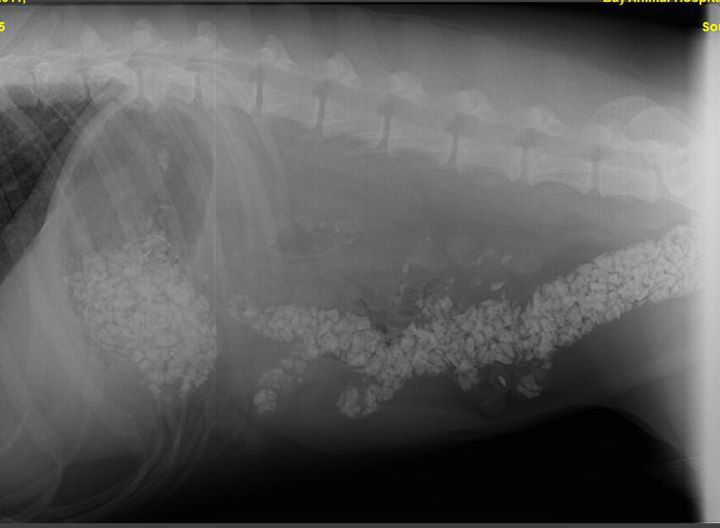We’ve all seen those “do not eat packets” in various types of products. What are these things? What are they used? And can “do not eat packets” make your dog sick?
Connect with a verified veterinarian in minutes. Licensed vets are available 24/7 to answer your questions. No need to worry about your furry family member.
What are “Do Not Eat Packets”?
You’ve probably noticed those small packets that say “do not eat” in various types of products. You’ll find them certain foods, medications, shoeboxes, and more. The substance these packets contain is silica gel.
Silica gel is a drying agent, which is placed in packages to keep oxygen away from certain products. The gel is also used to keep moisture from building up in product packaging. You may find these packets in your medication, where it’s meant to keep humidity levels low. The same thing goes for shoeboxes.
The gel’s a bit like sand. The gel can absorb up to 30% of its weight in water, which is why it’s used in so many products. It’s small but takes care of moisture build-up.
Will silica gel make your dog if he eats it?
Silica gel & Dogs
The good news is that silica gel, found inside the “do not eat” packets, is non-toxic if eaten by you, your kids, or your dog! However, there are a couple of problems that can arise from the ingestion of the silica gel.
The first issue is that it can pose a choking hazard in people, so there’s a chance a dog could have this problem, too. Another issue is that if a dog swallows a lot of the silica gel, it could create an intestinal blockage. This is rare but could happen if a dog ate many packets.

Review symptoms, medications & behavior to keep your pets healthy with a Vet Online in just minutes.
Ask a Vet Live NowWhat to Do If Your Dog Ingests Silica Gel
First, determine what type of product the silica gel package was in. Was it food? If so, then you probably don’t need to worry too much. However, you’ll need to monitor your dog for any concerning symptoms.
On the other hand, if the silica gel was packaged in a medication, chemicals (such fertilizers or insecticides), or some other type of chemical or substance that could make your dog sick, then it’s a good idea to call the vet as soon as possible. Your dog could be affected by those chemicals, which can be toxic to dogs. This is because the packet may absorb some of the substance.
Symptoms in Dogs That Have Swallowed “Do Not Eat” Packets
Here are the concerning symptoms to watch for if your dog has ingested even one silica gel packet:
1). Choking: if your dog starts to choke and has difficulty breathing, this is a medical emergency. You’ll need to get your dog to the vet immediately. This is a life-threatening medical emergency.
2). Intestinal blockage: because the packets are meant to soak up moisture, it’s possible the packets could swell after being eaten. In your dog’s stomach, the silica gel will begin to soak up moisture. This could cause an intestinal blockage.
You may notice these symptoms if your dog has ingested silica gel packets:
- Loss of appetite
- Constipation
- Vomiting
- Diarrhea
- Lethargy
- Excessive drooling
- Abdominal pain/swelling
If your dog is showing any of these symptoms after eating silica gel packets, then you’ll need to call the vet immediately. This is a life-threatening medical emergency.
Your dog has the best prognosis if he receives prompt medical treatment for these issues. So, responding early can save your dog’s life.
Connect with a verified veterinarian in minutes. Licensed vets are available 24/7 to answer your questions. No need to worry about your furry family member.

Kim
Kim is a talented author, who loves animals especially dogs. She engaged in writing books and articles relating to animals a decade ago. Kim resides in Chicago with her husband and son. The family is the proud owner of a dog and a parrot (Jack and Lily). Kim wanted more than these two pets, but her husband put his foot down... She often visits elementary schools to talk to the kids about what she learned about pets and how they could learn from them.
Review symptoms, medications & behavior to keep your pets healthy with a Vet Online in just minutes.
Ask a Vet Live Now




